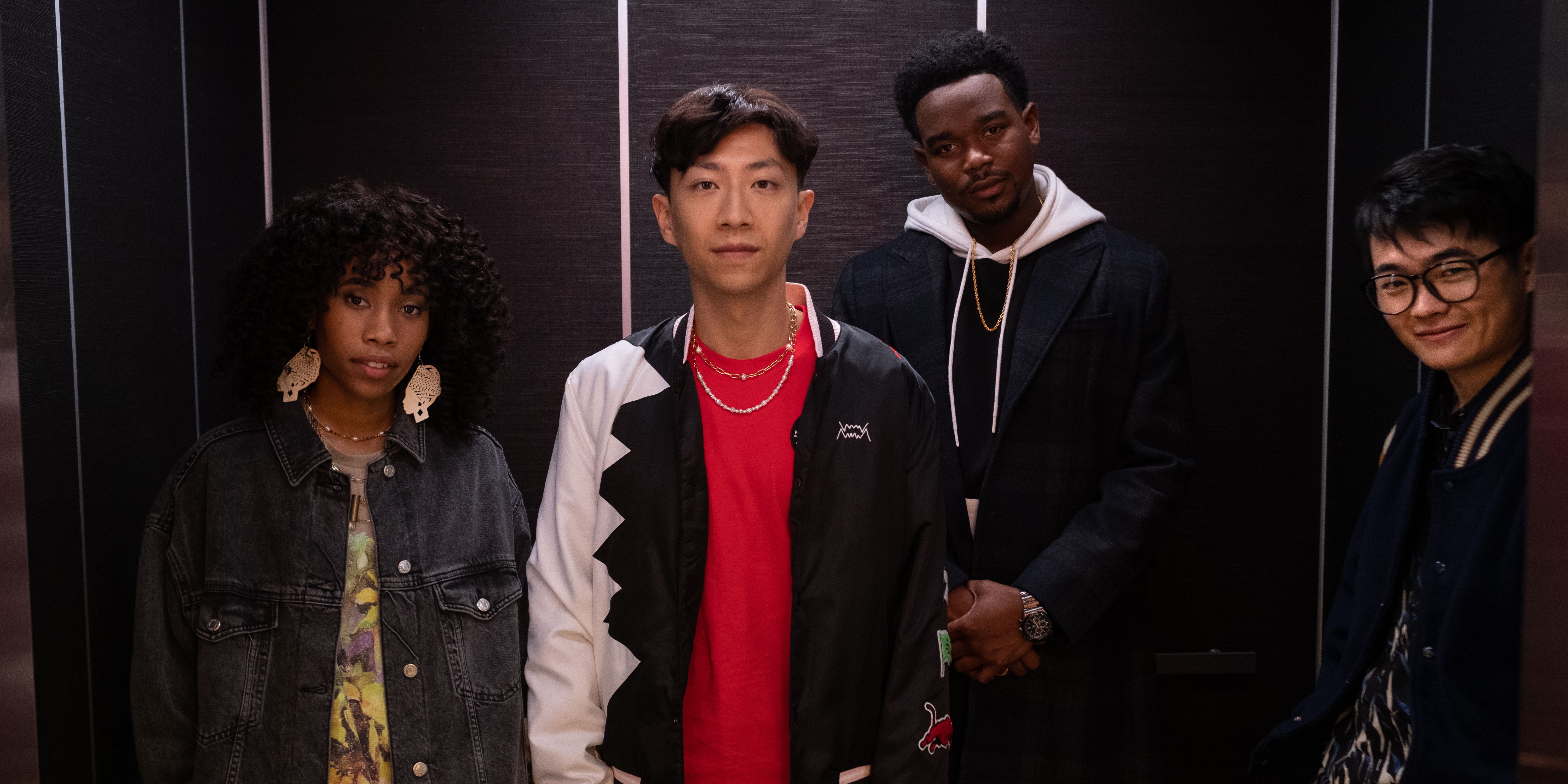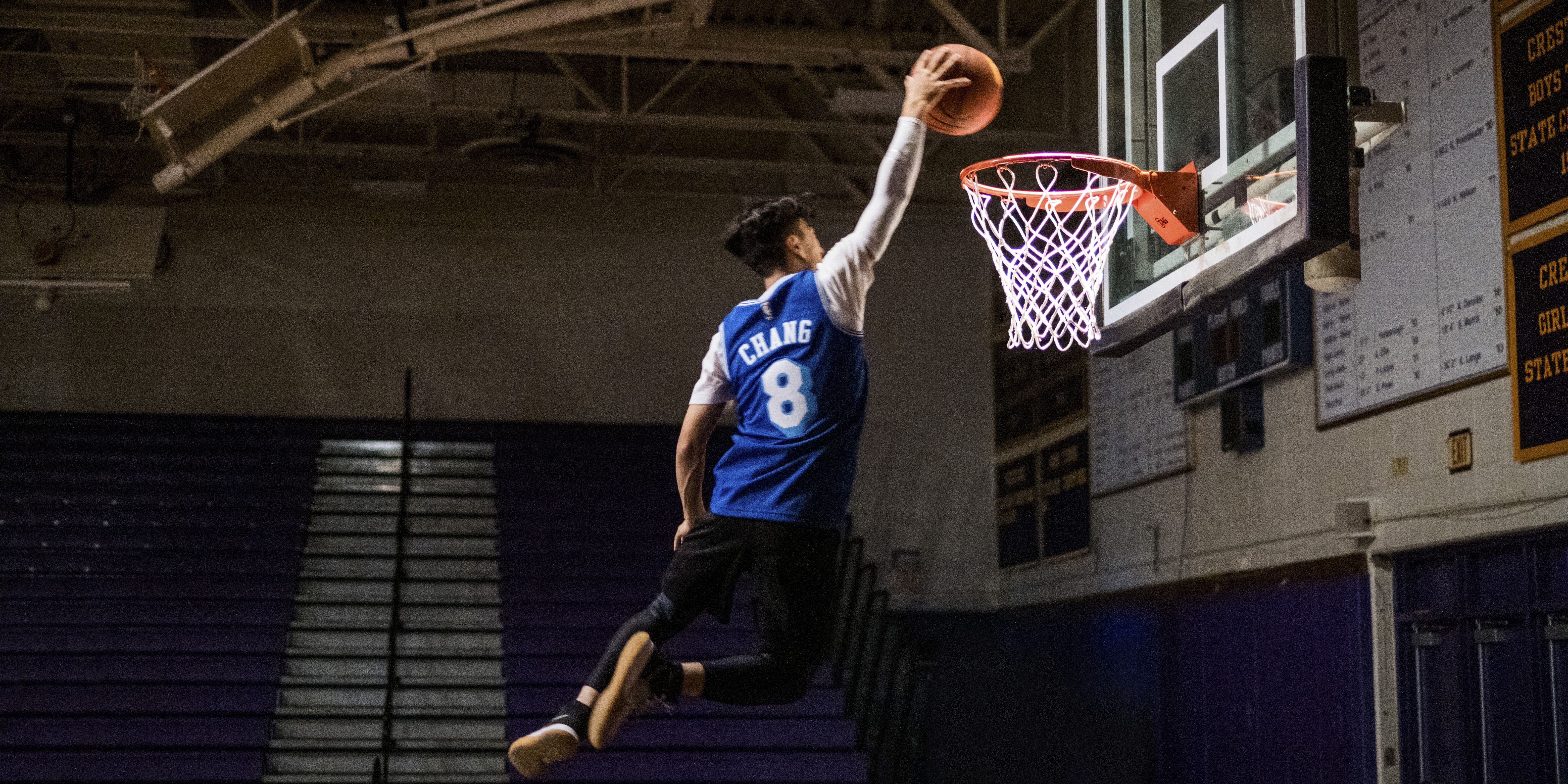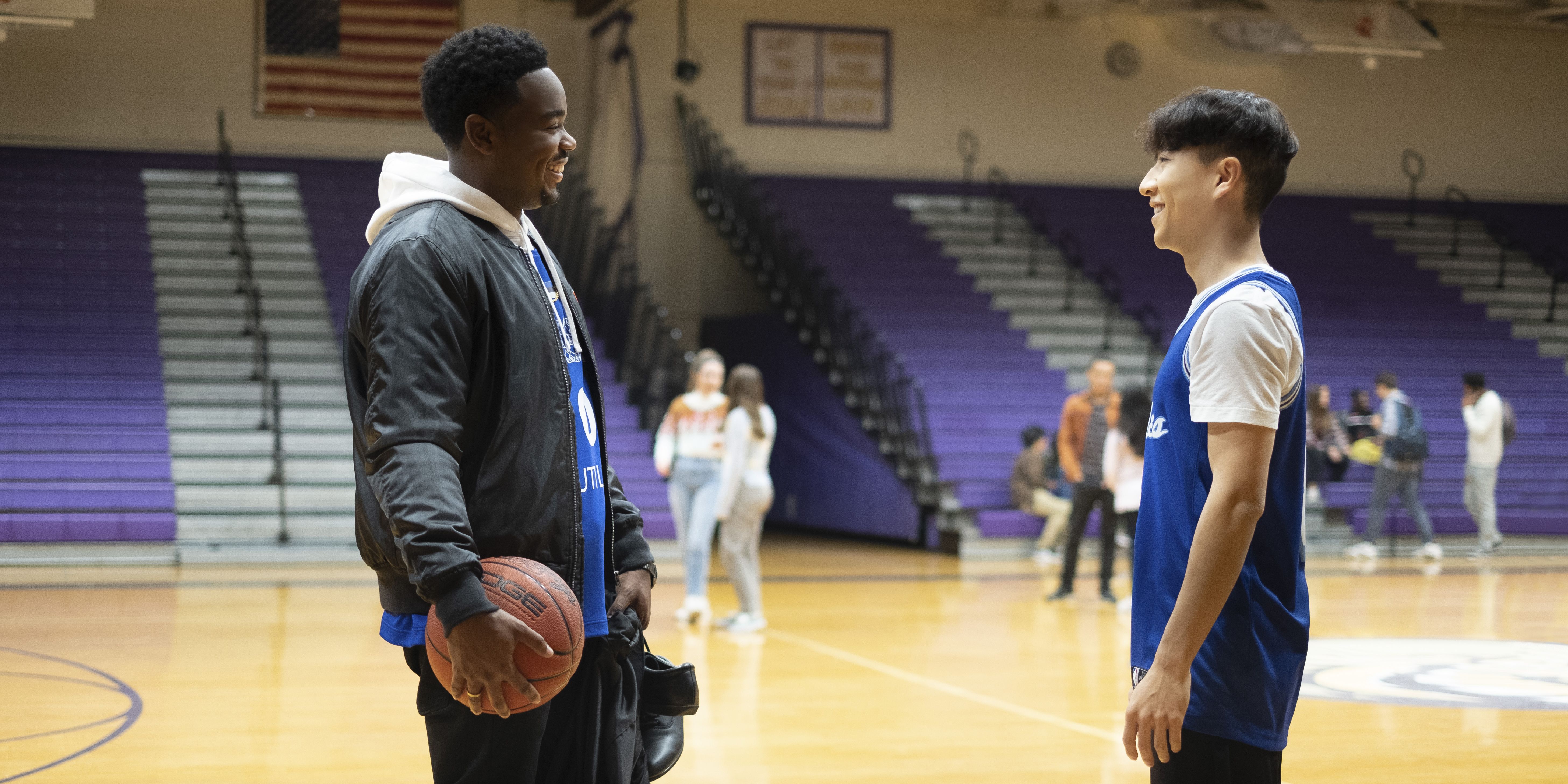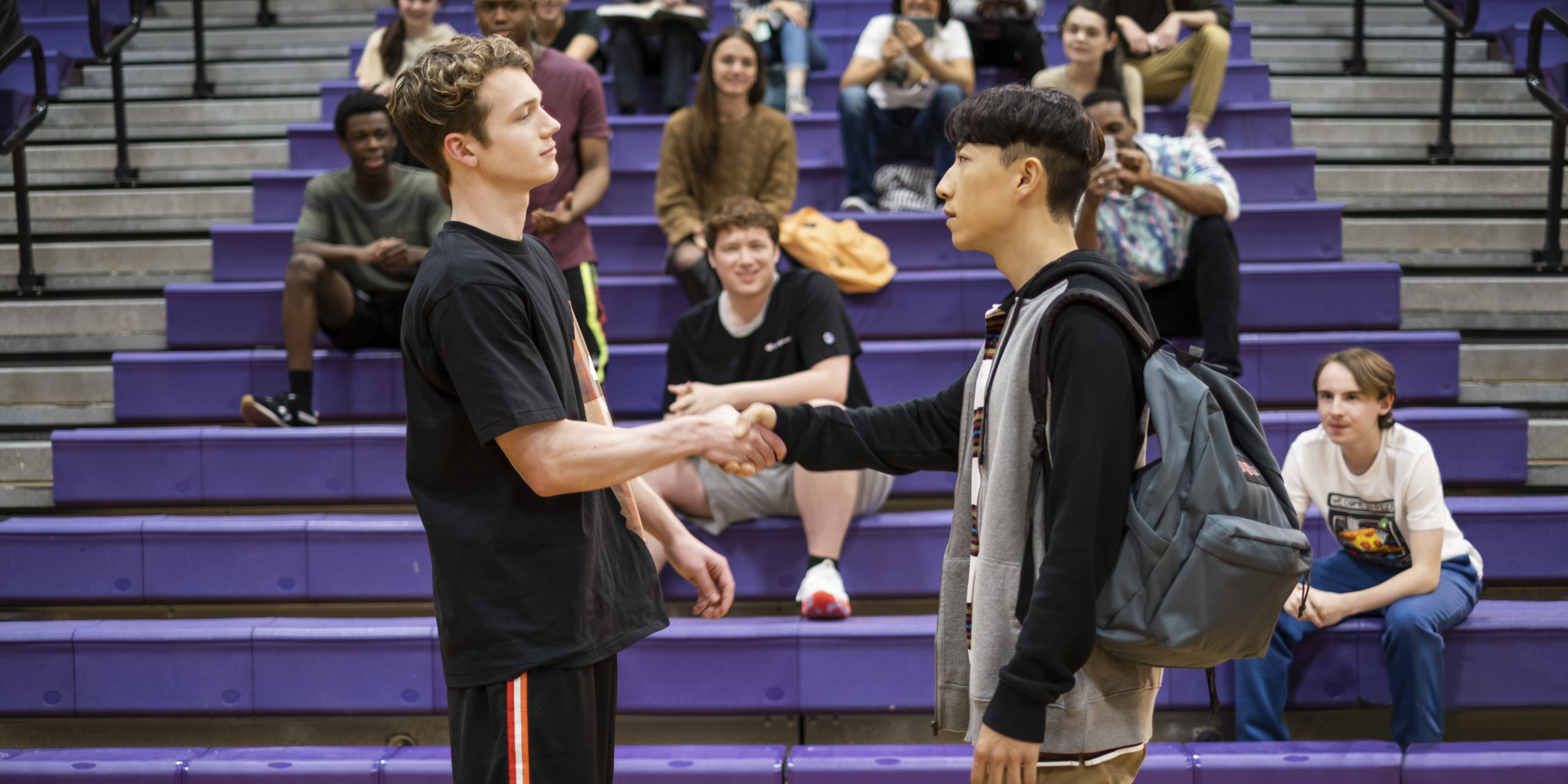What starts as a simple goal to dunk a basketball becomes a teenager's journey of self-discovery in Disney+'s new coming-of-age film, Chang Can Dunk. After making a bet with the school's basketball star that he can dunk by homecoming, Chang enlists the help of a talented underdog to train him. However, Chang's need to tackle the challenge forces long-repressed issues to the surface, as he examines who he is versus how he wants to be perceived.
Produced by Rishi Rajani and Brad Weston, Jingyi Shao serves as both the writer and director of the film. While Chang Can Dunk is his feature film debut, Shao has worked on several shorts that include Toenail and Lee's Market. The main cast includes Bloom Li, Dexter Darden, Ben Wang, Zoe Renee, Chase Liefeld, and Mardy Ma.
Writer-director Shao chats with Screen Rant about using a dunk to emphasize the importance of one's self-worth and breaks down the mother-son relationship at the heart of the film.
Jingyi Shao Talks Chang Can Dunk
Screen Rant: Congratulations on your feature film debut. What’s been the most rewarding part of the process so far?
Jingyi Shao: Wow. You wait for an opportunity for so long to express yourself in a complete way, and then it comes, and you're super absorbed in the process, and you're trying to do your best. Right now, as the movie is about to come out, I'm really reflecting on the people that I met, the relationships that I've forged, and seeing how connected I am, especially with my lead actor, Bloom, on the message that we're trying to put out, and what we've accomplished in our careers, and what this movie might represent to a young generation. I'm so very grateful and lucky and honored.
I was immediately intrigued by the premise of the film. It sounded like a fun watch right off the bat. How did you manage to turn a simple concept into such a profound and complex story?
Jingyi Shao: The movie started with a single image that was stuck in my head for a long time. It was the scene where Chang is trying to dunk in the snow. I've been the kid on the court when it's raining and still trying to get shots up. I just kept asking myself, "Why does this kid want to dunk so bad? Why is this so important to him?" And then from there, I was like, "Can I make an audience care about something that's so simple, and maybe not even consequential?"
For Chang to dunk—it's not that important, but it's also everything to him. You know what I mean? Who knows if he's going to go to the NBA? But he's not trying to go to the NBA. He's just trying to dunk a basketball. But if he can do it, it can affect all the other aspects of his life because he is asking a fundamental question about himself. The more I thought about that, I realized we're all doing that. We're all asking ourselves, "What are we worth? What are we capable of?" The way we answer that question has so much to do with how our lives are.
That touches on another question that I had for you. Chang admits he didn't really care if he could dunk—he just wanted other people to think that he could. It was a great way to summarize how a lot of us determine our worth. Can you expand on that?
Jingyi Shao: I think that when you're growing up, especially when you're younger, you really want to be seen. You really want to be respected and liked by your peers. And that just naturally makes their opinions very, very important to you. In those moments, if you don't have a strong mentor, if there's not someone to teach you what it is to pursue your own goal and to learn your own self-worth through trial and difficulty, you can very easily tie who you are to the opinions of other people. Chang, with the dunk, is pursuing that.
He doesn't know that he's pursuing that. He thinks he just wants to dunk so that he can show Matt. But really, the whole time he's cared about how people perceive him, which is why in the beginning, he's talking about his hair and "Freshman Chang" is no more. There's that picture of him—Freshman Chang, and he's written all the ways that he's going to improve on that version of himself. The entire film is about evolution and growth. My message is, "How can you do that if you don't see yourself and respect yourself first?"
Switching gears a bit, you’re a basketball player yourself. How involved were you in choreographing those scenes on the court?
Jingyi Shao: I'm a basketball hobbyist. I'm a weekend warrior. I don't think I've ever played too competitively. But I know a little bit about basketball. For me, when we were shooting the basketball stuff, it wasn't about making the basketball look as spectacular as possible and epic as possible because we're not watching a Michael Jordan biopic. What I wanted the basketball to do was to heighten the story stakes. In talking with the basketball coordinators, we talked about moves and styles that would accentuate the personality and the stakes of the situation. How does Matt play basketball versus Chang? How do they express themselves on the court? When you see Matt, you can tell that this kid flows. He's very comfortable, he's very confident.
When you see Chang, he's a little rougher. He's trying really hard—maybe trying a little too hard. One of my favorite scenes is one of those videos of them playing pickup, and it's all shot from the sideline. When you're actually recording basketball, you can't be in the middle of the scene like you sometimes see in movies. You see Chang grow in confidence. Every basketball player has had that moment in their life. They get in the game, the other players are better than them, and then they start to make some moves, and they get more confident, and you can just see it in their body language. In terms of how the basketball was choreographed, I tied it to the storytelling first.
The training montages are one of the high points of the film for me. I love a good montage. Did they turn out the way you envisioned?
Jingyi Shao: They don't tell you how hard it is to make a montage in terms of logistics. I love montages as well, and I really care about them. I wanted the two to be very different. I wanted them to feel different. I spent a lot of time, once again, approaching it from a story perspective and making sure that each scene was building on a story point. One of the montages isn't just about the growth of Chang, but it's about the growth of three different characters. DeAndre as the mentor, the coach, Bo as the videographer, and Chang as the subject. We did a very careful shot listing and storyboarding of those scenes to make sure that they really hit those story points. In the end, I'm very proud of them.
When you were building the relationship between Chang and DeAndre, how did you want it to be perceived by the audience?
Jingyi Shao: In the beginning, I wanted it to feel more transactional. I wanted it to be more of a business agreement. Like, "We'll help you do this, if you help us do this." But over the course of it, their chemistry is just so good that they can't help but like each other. It was crazy. The first scene where I shot the three of them together, where DeAndre sees how far off Chang actually is from dunking, you could just feel this electricity between the three of them.
You really just get the sense that DeAndre can't help but want to help this kid. DeAndre is a bit of an underdog himself. He had all this promise, and he had a great career, but now he's working at Verizon. But he still believes in himself. I think that's why the three of them connect so strongly. They're all trying to do something, and they're all trying to be great at what they're trying to do.
The relationship between Chang and his mom is an essential pillar of the film. What made you want to put that front and center?
Jingyi Shao: I'm drawing from my personal experiences. Generally, in past films, there's sort of a key antagonist, and they're the ones that you have to overcome. Normally, that would be Matt in this film. But if I look back, and I was honest with myself, of my high school experiences, the thing that cut deepest was that, no matter how I felt ostracized or didn't fit in in school, what really hurt was coming home and having my mom not really understand what I was going through either. And being unable to get the support that I wanted from her that maybe I had seen in a previous Disney film.
Ultimately, as I grew up, I saw that she was loving me and supporting me in the ways that she knew how, and that helped me become the person I am today. I wanted to make a film that would highlight the evolution of a relationship like that so that immigrant kids can see the value of their parents and see that they're trying and see their parents in the way that maybe they feel like their parents don't see them. Once I had that, I knew that the film would slowly morph into, "Oh, this film is actually about Chang's relationship with his mom." His dad's not around anymore, and this is what's really holding him back and making him want to get attention and respect from his peers so badly.
You use a “dunk” as a metaphor for a person’s dreams and goals. Was there something specific you wanted it to represent for Chang?
Jingyi Shao: The dunk represents just dreams in general, but I think it represents a person's possibilities. We all have a self-understanding—we all have a box that we put ourselves in. That box is formed by our experiences with other people, by our parents, by our upbringing...a lot of times in life, we want something that's outside that box. Can we get there, if we're in this box?
I think Chang's journey in this is that he thinks he's in a box created by other people, but he's also in a box created by himself. If he really wants to dunk, he's going to have to break through both. Dunking is such a great metaphor for me because it's literally about ceilings. We're always talking about ceilings—bamboo ceilings, glass ceilings, etc., etc. How do you break through that ceiling? Is it possible? And I explore an aspect of that in this film with Chang trying to dunk.
With the evolving landscape of Asian representation in the American film industry, how do you feel seeing movies like Everything Everywhere All At Once get the recognition they deserve?
Jingyi Shao: Honestly, I'm not surprised at all. I think that a huge proportion of us are second-generation, meaning we arrived in the late 80s, early 90s. It takes time to learn how to be a filmmaker, it takes time to be great at any art. Finally, we're coming up on our 10,000 hours—an entire swath of people. That's why the sudden burst is so numerous. We're all coming of age, basically. I'm very proud to be part of that.
What’s next for you after Chang Can Dunk? Is there another genre you’re hoping to explore?
Jingyi Shao: Yes, I have a bunch of projects in the works. I love stories about self-empowerment, about characters wanting to be more than they are. I do want to explore other genres. I would love to take on a big franchise. I have my eyes on one that, unfortunately, I can't reveal. But I also want to take on a more adult tone in my next project.
About Chang Can Dunk
“Chang Can Dunk” follows Chang, a 16-year-old, Asian American high school student in the marching band, who bets the school basketball star that he can dunk by Homecoming. The bet leads the 5 ’8" Chang on a quest to find the hops he needs to dunk in order to impress his crush, Kristy, and finally gain the attention and respect of his high school peers. But before he can rise up and truly throw one down, he’ll have to reexamine everything he knows about himself, his friendships and his family. “Chang Can Dunk” will premiere exclusively on Disney+ March 10.
Chang Can Dunk begins streaming exclusively on Disney+ on March 10.




